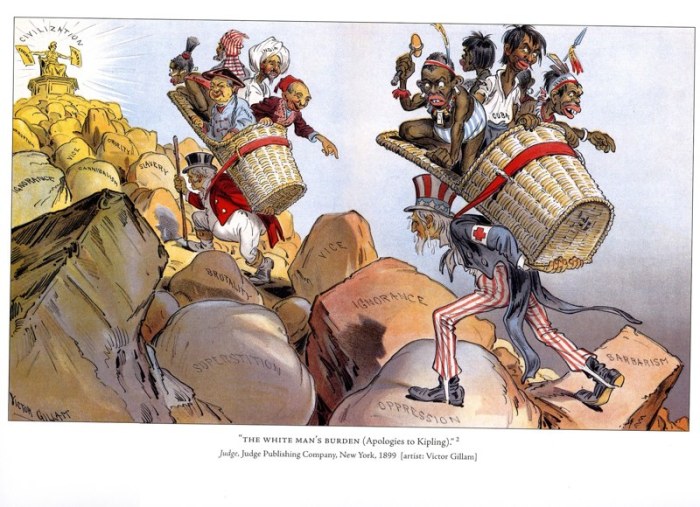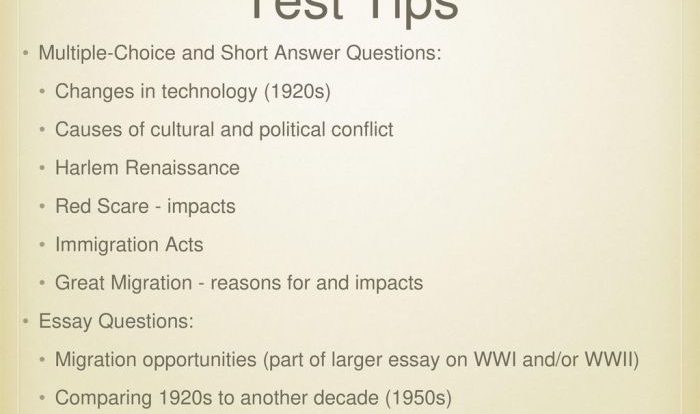Embark on a journey through the annals of history as we delve into the chilling phrase “civilize them with a stick.” From its insidious origins to its profound impact on indigenous populations, this exploration unravels the intricate tapestry of imperialism, racism, and the enduring consequences of violence in the name of progress.
Uncover the cultural and social implications that have shaped this phrase, examining how it has been wielded to justify oppressive practices and perpetuate ethnocentric beliefs. Through a critical lens, we dissect the ethical dilemmas posed by violence as a means of “civilizing” and explore alternative paths toward cultural understanding and inclusivity.
Historical Context
The phrase “civilize them with a stick” has a long and complex history, dating back to the era of European colonialism.
During the 19th century, European powers justified their colonization of Africa and Asia by claiming that they were bringing civilization to these regions. This belief was based on the idea that European culture was superior to all others, and that it was the duty of Europeans to spread their civilization to the rest of the world.
Origins and Usage
The phrase “civilize them with a stick” was first used by British colonial administrator Sir Charles Napier in 1843. Napier was arguing that the only way to deal with the Indian people was to use force. He believed that the Indians were incapable of understanding reason or logic, and that they could only be controlled through fear.
Napier’s views were widely shared by other European colonialists. They believed that the use of force was necessary to maintain order and to protect their interests. This belief led to the widespread use of violence and brutality against indigenous peoples.
Imperialism and Colonialism

European imperialism and colonialism were driven by a range of factors, including economic, political, and ideological motives. One of the key justifications for colonization was the belief that European powers had a moral obligation to “civilize” indigenous populations.
The phrase “civilize them with a stick” encapsulates the violent and oppressive practices that were often employed in the name of civilization. This phrase was used to justify the use of force, including military conquest, to impose European values and institutions on indigenous societies.
Impact on Indigenous Populations
The impact of these policies on indigenous populations was devastating. European colonizers often seized land, destroyed traditional cultures, and forced indigenous people into labor. The use of violence and oppression led to widespread death and displacement, as well as the loss of cultural identity and autonomy.
Cultural Superiority and Racism: Civilize Them With A Stick
The phrase “civilize them with a stick” embodies the arrogant assumption that Western culture is superior to all others. This belief, rooted in ethnocentrism and racism, has profoundly impacted intercultural relationships.
Underlying Assumptions of Cultural Superiority
The phrase implies that non-Western cultures are inherently inferior and must be “civilized” according to Western standards. This assumption rests on the belief that Western values, institutions, and technology are objectively better than those of other cultures.
Influence of Racism and Ethnocentrism
Racism, the belief in the inherent superiority of one race over others, and ethnocentrism, the tendency to view one’s own culture as superior, have fueled the perception of non-Western cultures as “uncivilized.” These beliefs have justified the subjugation and exploitation of non-Western peoples.
Consequences on Intercultural Relationships
The belief in cultural superiority has created a barrier to understanding and cooperation between different cultures. It has led to mistrust, conflict, and the devaluation of non-Western traditions and perspectives.
Violence and Oppression

The process of “civilizing” has often been accompanied by violent and oppressive practices. These practices have ranged from physical violence and torture to cultural suppression and psychological manipulation.
The physical harm caused by these practices is evident in the countless deaths and injuries that have occurred in the name of “civilizing.” The psychological harm is more difficult to quantify, but it is no less real. The experience of violence and oppression can lead to a loss of self-esteem, a sense of powerlessness, and a deep mistrust of others.
Cultural Suppression
Cultural suppression is another common tactic used by colonizers to “civilize” indigenous peoples. This can take many forms, including the banning of traditional languages, religions, and customs.
The effects of cultural suppression can be devastating. It can lead to the loss of a people’s identity and a sense of disconnection from their own history and culture.
The infamous “civilize them with a stick” approach, a brutal tactic used to suppress Indigenous peoples, played a significant role in shaping the American frontier. For an in-depth analysis of this time period, refer to apush time period 6 dbq , which provides a comprehensive examination of this era’s key events, policies, and impacts.
Understanding the “civilize them with a stick” mindset is crucial for comprehending the complexities of American history.
Alternatives to Violence
While violence has been a prevalent method of enforcing cultural superiority, it has proven ineffective and detrimental. Alternatives exist that promote cultural understanding and progress without resorting to oppression and bloodshed.
Education
Education plays a crucial role in fostering mutual respect and understanding. By teaching about different cultures, their histories, and perspectives, education can dispel stereotypes and biases. It cultivates empathy and appreciation for diverse ways of life, breaking down barriers of ignorance and prejudice.
Dialogue and Engagement
Open and respectful dialogue is essential for promoting cultural understanding. Engaging in conversations with people from different backgrounds allows us to share perspectives, learn from each other, and challenge our own assumptions. By fostering active listening and empathy, dialogue can build bridges and create a foundation for cooperation.
Cultural Exchange
Cultural exchange programs, such as student exchanges, language immersion programs, and artistic collaborations, provide opportunities for people to experience different cultures firsthand. By immersing themselves in a foreign environment, individuals gain a deeper understanding of the nuances and complexities of another culture, fostering appreciation and respect.
Contemporary Relevance
The phrase “civilize them with a stick” remains relevant in contemporary society, reflecting the lingering influence of imperialism and colonialism on global attitudes and interactions. The legacy of these oppressive systems continues to shape perceptions of cultural superiority, fostering discrimination and perpetuating violence against marginalized communities.
Challenges in Promoting Cultural Diversity and Inclusivity, Civilize them with a stick
Promoting cultural diversity and inclusivity in the modern world faces several challenges:
- Cultural Hegemony:Dominant cultures often exert undue influence, marginalizing and suppressing minority cultures.
- Prejudice and Discrimination:Negative attitudes and discriminatory practices based on cultural differences persist.
- Economic Inequality:Disparities in wealth and opportunity can create barriers to cultural exchange and understanding.
- Political Conflict:Cultural differences can be exploited to fuel conflicts and divisions.
- Globalization:While it can foster cultural exchange, globalization can also lead to cultural homogenization and the erosion of local identities.
FAQ Corner
What are the origins of the phrase “civilize them with a stick”?
The phrase has its roots in the 19th century, when European powers used it to justify their violent and oppressive practices in colonized territories.
How did the phrase “civilize them with a stick” impact indigenous populations?
It led to widespread violence, cultural suppression, and the disruption of traditional ways of life.
What are the ethical implications of using violence as a means of “civilizing”?
Violence perpetuates a cycle of oppression and undermines the very principles of civilization it claims to uphold.


